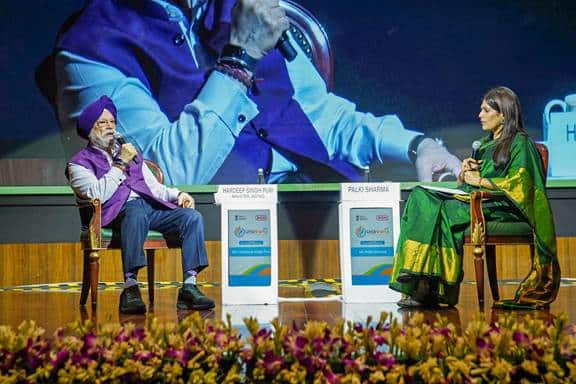India Unveils Upstream Energy Strategy at Urja Varta 2025

Minister of Petroleum and Natural Gas, Hardeep Singh Puri, recently outlined India’s ambitious strategy to enhance upstream exploration and production (E&P), bolster energy resilience, and foster international cooperation. Speaking at the Urja Varta 2025 conclave in New Delhi, he addressed the challenges posed by global geopolitical tensions, including the Russia-Ukraine conflict and Middle Eastern unrest. Puri emphasized India’s proactive measures to diversify crude oil import sources and highlighted significant policy reforms aimed at making the country’s upstream sector more competitive on a global scale.
Strengthening Energy Security
During his address, Minister Puri discussed India’s approach to energy security amid ongoing global disruptions. He revealed that India has expanded its crude oil import sources from 27 to 40 countries, a strategic move designed to ensure uninterrupted energy access. He pointed out that Russia, a major oil producer, contributes significantly to the global oil supply, producing over 9 million barrels per day. Puri warned that a sudden withdrawal of Russian oil from the market could lead to chaos, with prices potentially soaring to between $130 and $200 per barrel. He clarified that India has not engaged in purchasing any sanctioned cargo, as Russian oil is subject only to a price cap rather than outright sanctions. This approach, he noted, reflects India’s balanced stance in the global energy market, which has been bolstered under Prime Minister Modi’s leadership.
Transformative Policy Reforms
Puri highlighted a series of transformative reforms implemented over the past decade to enhance the competitiveness of India’s upstream sector. He introduced the reimagined exploration framework under the Oilfields Regulation and Development Act (ORDA), which features a co-designed approach, a streamlined approval mechanism, and transparent operational rules. The introduction of a “no-sit” clause aims to eliminate inactive acreage, thereby optimizing resource utilization. These reforms, combined with the revised Petroleum and Natural Gas Rules (PNG Rules 2025) and Model Revenue Sharing Contracts (MRSC), are intended to simplify business operations and attract private investment. The Minister noted that the Hydrocarbon Exploration and Licensing Policy (HELP) and amendments to the ORD Act have opened nearly 1 million square kilometers of previously restricted areas for exploration, unlocking significant resource potential.
Offshore Energy Ambitions
In discussing India’s offshore energy ambitions, Puri expressed optimism about the hydrocarbon potential of the Andaman Basin, likening it to the prolific Guyana Basin. He stated, “I am positive we will find several fields of the size of Guyana, particularly in the Andaman Sea.” This confidence is supported by improved access to high-quality geoscientific data, robust regulatory frameworks, and policy incentives designed to mitigate exploration risks. Puri emphasized India’s goal of becoming a credible frontier for deepwater oil and gas exploration, leveraging its scale, demand continuity, and global partnerships. He also underscored the importance of enhancing subsurface intelligence through the modernization of seismic databases and extensive surveys, which are crucial for fostering investor confidence and promoting transparent decision-making in exploration.
Collaboration and Future Investments
The Urja Varta 2025 conclave served as a platform for collaboration among various stakeholders in the energy sector. Puri highlighted the essential role of state governments in facilitating energy development projects and called for stronger cooperation between the Centre and states. He noted that India has invested over ₹4 lakh crore in energy infrastructure over the past decade and projected an investment of ₹30–35 lakh crore over the next ten years. This upcoming decade is expected to be pivotal for energy infrastructure development, with significant investments anticipated across the hydrocarbons value chain. Puri emphasized the need for leadership and proactive participation from states to address recurring challenges in the sector. The conclave reaffirmed India’s commitment to building a robust, transparent, and investor-friendly upstream energy ecosystem, positioning the country as a global energy leader under PM Modi’s vision.
Observer Voice is the one stop site for National, International news, Sports, Editor’s Choice, Art/culture contents, Quotes and much more. We also cover historical contents. Historical contents includes World History, Indian History, and what happened today. The website also covers Entertainment across the India and World.
Follow Us on Twitter, Instagram, Facebook, & LinkedIn

